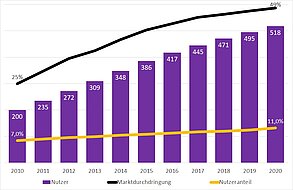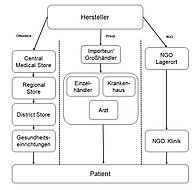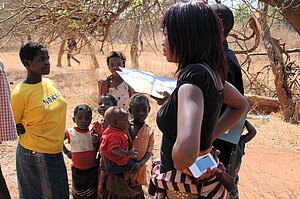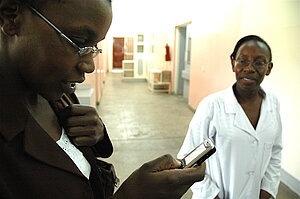Drug Supply in Sub-Saharan Africa
Access to sufficient basic medical care can be understood as a basic human right. However, since the focus of drug supply is often on the highly developed industrialized countries, this cannot always be guaranteed for all developing countries in the Sub-Saharan region.
In order to improve the supply there, technologically innovative solutions have increasingly been developed in recent years. The greater penetration of mobile and data networks in Africa, with an estimated 700 million smartphones by 2020, makes it possible to use digital communication channels for drug supply as well.
Examples of mHealth in Sub-Saharan Africa
Various innovative solution concepts are already in use for the problems of drug supply. For example, the short-code platform "mPedigree" helps to ensure the authenticity of medicines. Patients can send a code on the packaging via SMS and receive verification within seconds. The "cStock" application is designed to support healthcare workers in inventory planning. They report their current status via SMS and "cStock" then determines, among other things, the order periods and informs them as soon as medicines are ready for collection.
Outlook
Improved access to digital infrastructures and the increased performance of mobile end-user devices enables their use for the execution of complex applications. This can, for example, enable the planning and control as well as the operational management of medication stocks - e.g. via a smartphone app. Another field of application would be to remind patients via smartphone to pick up and take their medication and to keep medical appointments. Both solutions can contribute to better forecasting of future needs and thus to increased planning reliability.
Contact & Links

Prof. Dr. Ronald Bogaschewsky has held the Chair of Business Administration and Industrial Management at the Faculty of Economics at the University of Würzburg since 2001. He is currently an associate member of the DAAD-funded project on the research and treatment of chronic infectious diseases. Felix Blank and Benjamin Siller are research assistants at the chair of Prof. Dr. Bogaschewsky.











